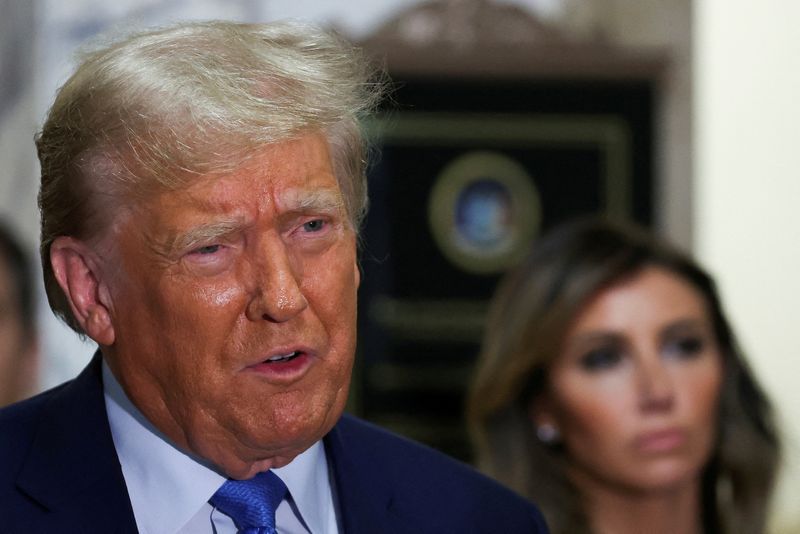By Andrew Goudsward
WASHINGTON (Reuters) -Colorado's highest court heard arguments on Wednesday on whether the U.S. Constitution allows former President Donald Trump to be disqualified from the state’s ballot next year over his role in the Jan. 6, 2021, attack on the U.S. Capitol.
Justices on the Colorado Supreme Court focused much of their questioning on whether a constitutional amendment passed after the Civil War that bars public officials from holding federal office if they have engaged in "insurrection" applies to U.S. presidents.
A group of Colorado voters, backed by the watchdog group Citizens for Responsibility and Ethics in Washington, are challenging Trump’s eligibility to return to the presidency under that amendment, arguing that he incited his supporters to attack the Capitol and that disqualifies him from running for office again.
The Colorado lawsuit has been viewed as a test case for a wider campaign to contest Trump’s 2024 candidacy under the constitutional provision, Section 3 of the 14th Amendment.
"If it was so important the president be included, why not spell it out?" Justice Carlos Samour asked, noting that the language of the amendment does not explicitly mention presidents.
Jason Murray, a lawyer for the voters, said it would be "bizarre" to disqualify candidates for lower-level public offices and not the president.
"A rebel who took up arms against the government couldn’t be a county sheriff, but could be the president," Murray said.
Murray said the 14th Amendment was the U.S. Constitution's "self-defense mechanism" against people who pose a danger to the government.
A lower court ruling last month found that then-president Trump engaged in insurrection by inciting a mob of his supporters to storm the Capitol in an unsuccessful bid to stop Congress from certifying Democrat Joe Biden's victory in the November 2020 election and obstructing the transfer of power.
But Judge Sarah Wallace allowed Trump to remain on the ballot in the Colorado Republican primary, finding that as president, Trump was not “an officer of the United States” who could be disqualified under the amendment.
Trump, the frontrunner for the 2024 Republican nomination, has asked the state Supreme Court to uphold the ruling allowing him on the ballot. His lawyers have disputed the finding that he engaged in insurrection and argued that courts do not have the authority to bar candidates from the ballot under the constitutional provision.
Trump lawyer Scott Gessler told the court that the Capitol riot was not serious enough to qualify as an "insurrection" and that Trump's speech in Washington on Jan. 6 exhorting his supporters to "fight like hell" was "perfectly consistent with normal patterns of political discourse."
Gessler argued the presidency was not a position the drafters of the amendment intended to be subject to disqualification.
"The president is different," Gessler said, adding that "the natural and comfortable meaning" of the amendment "points toward the president’s exclusion."
Watchdog groups and anti-Trump advocates have brought lawsuits in several states challenging Trump’s eligibility, though courts have so far rejected all attempts to keep Trump off the ballot.

Trump’s campaign has called the legal challenges an “un-American” attempt to prevent voters from being able to choose their preferred candidate.
The Colorado Supreme Court’s ruling can be appealed to the U.S. Supreme Court.